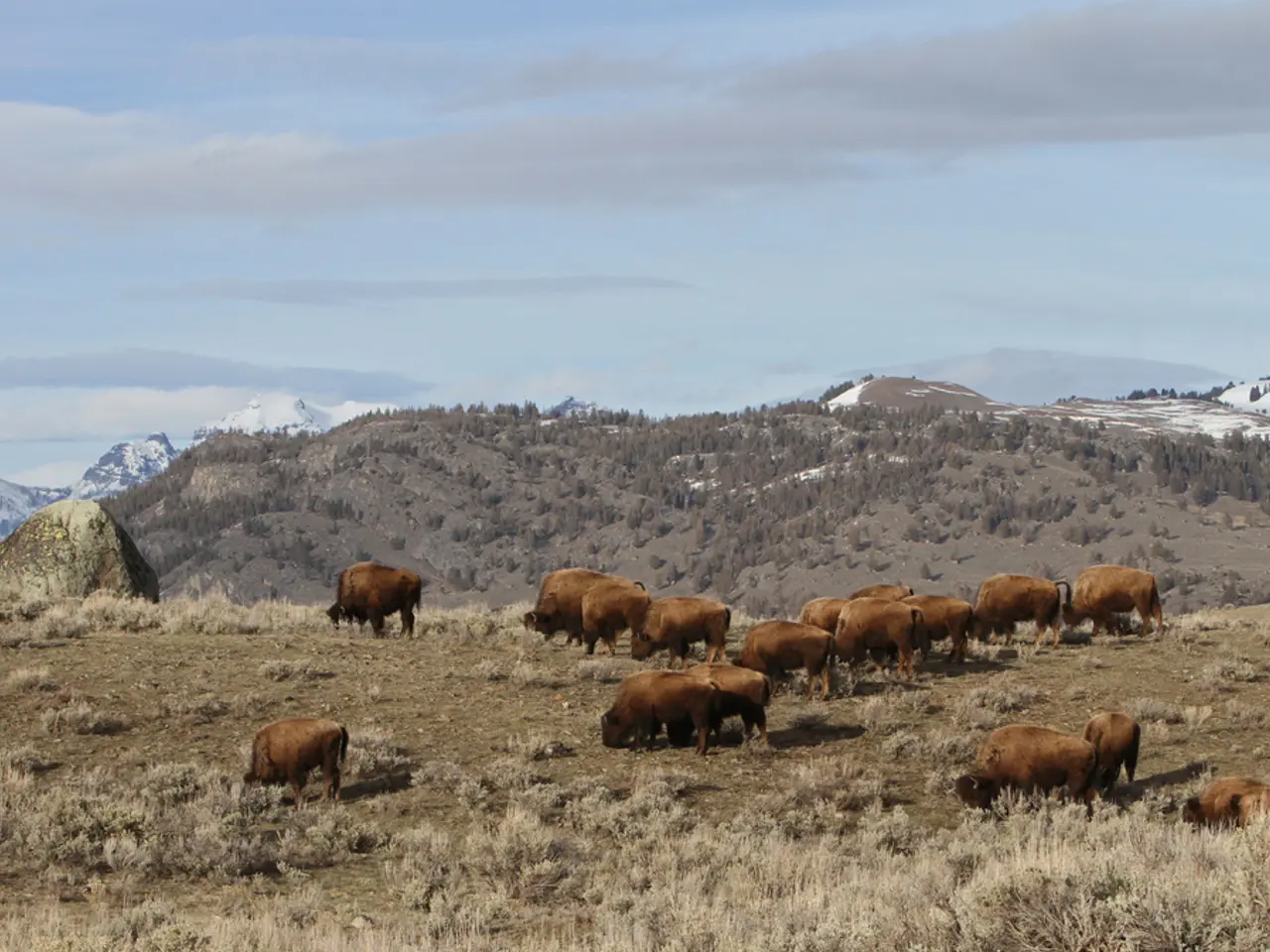Insights Gained from Our Scotland Excursion
In the picturesque Scottish Borders, over 30 farmers from Scotland, Northumberland, and Wales gathered for a two-day on-farm learning event, organised by Pasture for Life. The tour, which included visits to Oakwood Mill Farm and Edston Farm, aimed to showcase the benefits of regenerative farming for soil health and biodiversity.
The event kicked off at Edston Farm, where Matt Griffin and the Benson Wemyss Farms team shared their regenerative farming journey. Special guests included Rob Harvard of Phepson Angus, who discussed the importance of cattle selection, and Michael Barto, who spoke about soil health.
At Edston Farm, regenerative farming practices involve rotational or adaptive multi-paddock grazing, which mimics natural grazing patterns and promotes soil health by improving soil structure, increasing organic matter, and enhancing nutrient cycling. This approach supports diverse plant growth, which in turn benefits a variety of soil organisms and above-ground biodiversity. The farm's aim is to balance livestock production with conservation objectives, demonstrating that cattle raising can improve soil and biodiversity rather than degrade it.
Oakwood Mill Farm, home to Giles and Stuart Henry's Upland Organic beef farm, was another stop on the tour. Their cattle are outwintered on hill blocks, extending their grazing season. Steers from Oakwood Mill Farm are finished at 18-19 months before heading to Dovecote Park. During the tour, soil samples were taken to analyse the impact of grazing on soil health.
Surrounding Oakwood Mill Farm are kilometres of hedgerows, with over 7km being planted by Stuart and Giles to increase biodiversity on the farm. The farm also has a successful joint venture with Charley and Andrea Walker of Barnside Farm.
The Pedigree Luing cattle at Oakwood Mill Farm are raised using a rotational grazing system for their breeder-finisher system. The group also visited Lyne Farm to observe the farm's bale grazing infrastructure and discuss plans for out-wintering animals and extending the grazing season.
Lunch during the tour was prepared using local, Scottish ingredients by Clem Sandison, the Scotland Regional Facilitator. The second day of the tour included a community event celebrating the connection between people, food, and community. The event featured a poem by Nikki Yoxall, the Head of Research for Pasture for Life, and an Argentinian-style asado BBQ.
The tour highlighted the positive impact of regenerative farming on soil health and biodiversity. Since adopting a more regenerative system, Edston Farm has experienced an increase in soil health and biodiversity. New ideas have been formed and exciting new on-farm projects will no doubt be underway as a result of the Scottish Study Tour.
Many members of the Pasture for Life community gained new contacts to share knowledge with during the Scottish Study Tour. FarmMax plays a key role in helping Oakwood Mill Farm and Barnside Farm optimize their grazing platform and make budget decisions.
The Pasture for Life Scotland Study Tour demonstrated that regenerative farming can foster ecosystem resilience and sustainable agricultural productivity. It's clear that the future of farming lies in practices that promote enhanced soil health and biodiversity, and the farmers who participated in this tour are leading the way.
- At the Pasture for Life Scotland Study Tour, attendees learned about rotational grazing as a regenerative farming practice that improves soil health and supports biodiversity, as demonstrated at Oakwood Mill Farm and Edston Farm.
- Adopting a more regenerative farming system has resulted in increased soil health and biodiversity on Edston Farm, showcasing the positive impact such practices can have on a farm's lifestyle and its surrounding environment.
- The tour also highlighted the connection between food-and-drink, home-and-garden, and community, with local ingredients being used to prepare meals during the event and a focus on sustainability and resilience in agriculture.




